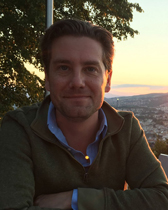Peter Locke
Associate Professor of Instruction
Curriculum Vitae

- peter.locke@northwestern.edu
- 847-491-4832
- 1800 Sherman Suite 1-200 #1-101, Evanston, IL 60208
Research and Teaching Interests
Global health, critical medical anthropology, development, Eastern Europe (especially the former Yugoslavia), West Africa (Sierra Leone), humanitarian psychiatry, post-conflict public health, science and technology studies
Biography
Peter Locke is a cultural and medical anthropologist focused on bringing ethnographic evidence to the comparative study of global health and humanitarian intervention in post-conflict societies. His field research, writing, and teaching all explore and critique the intersection of humanitarian work and reigning modes of evidence production in contexts of contentious local politics and lingering histories of conflict and mass violence.
Locke’s doctoral research in Bosnia-Herzegovina examined how the urban poor cope with traumatic histories and rebuild their lives in a new post-war state and economy; more specifically, he charted the impact and sustainability of humanitarian psychiatry and psychosocial support services for war survivors in Sarajevo. Locke’s dissertation (under revision as a book manuscript) aims to illustrate how anthropological evidence can help to ground debates about international humanitarianism and democracy-building, enrich social scientific and clinical approaches to trauma, and imagine alternative approaches to post-war social repair that better incorporate the values, needs, and desires of survivors.
More recently, Locke has accompanied small undergraduate teams to Sierra Leone to conduct ethnographic research on the encounter between the booming transnational discourses and practices of “global health” and local understandings of and struggles for healing, care, and survival. Locke has worked together with students and the leaders, caregivers, and beneficiaries of a small American-funded medical humanitarian NGO (nongovernmental organization) to explore how some of the key themes and dynamics of today’s “new world of global health” play out in one of Africa’s poorest nations, where public health infrastructure is deeply limited and a range of actors, from Western humanitarians to local networks of traditional healers, are struggling to fill in the void.
Prior to joining Northwestern’s faculty, Locke served as a postdoctoral research associate and then as a lecturer for Princeton University’s Program in Global Health and Health Policy.
Selected Publications
- “Anthropology and Medical Humanitarianism in the Age of Global Health Education.” Book chapter, forthcoming in Sharon Abramowitz and Catherine Panter-Brick, eds., Medical Humanitarianism in States of Emergency, University of Pennsylvania Press, 2014.
- “Appropriating Trauma: Legacies of Humanitarian Psychiatry in Postwar Bosnia-Herzegovina.” 2012. Intergraph: Journal of Dialogic Anthropology 3(2).
- “Deleuze and the Anthropology of Becoming” (with João Biehl). Current Anthropology 2010, 51(3):317-351 (with comments and a reply).
Courses at Northwestern
- Health and the Social Markers of Difference
- Introduction to International Public Health
- Qualitative Research Methods in Global Health
- Medical Humanitarianism
- War and Public Health
